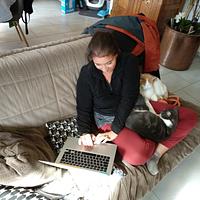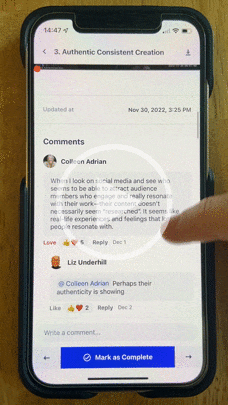Home
Q&A
BizPlan26
🌞 JoyPro
🔮 AI Course
💛
- Orientation
- BizPlan
- BizPlan25
- Authentic Speaking
- Authentic Market Discovery
- Create Aligned Offers
- Joyful Productivity (Course)
- ✨ Authentic Outreach (AO)
- Joyful Pro
- Blog-to-Book
- 🚀 Course Creators
- 🖼️ Your Signature Framework
- 🙋 Effortless Yes
- 🌈 Energy Signature
- Meta Ads (FB / IG Advertising)
- 📱 Instagram Mastery
- 🎤️ Interview Mastery
- Launch Your Group Program
- Netcaring
- 🦸🏽✍🏽 Soulful Content (OGI)
- Substack Course
- "What do you do?"
- 🎬 YouTube Mastery
FG

Fara Grim
@fara.grim
I am a bold adventurer, working remotely and building my global network with each passport stamp.
Travel and connection with people are at the core of my personality. I am a social butterfly at heart and I love meeting new people.
Active 2y ago
Joined 21 Jul 2023
(GMT-08:00) Pacific Time (US & Canada)
 5:29
5:29
📲 Accessing my courses on mobile - use the Simplero app!
Download the Simplero app from your phone's app store 🙌🏾
___MESSAGE___
___MESSAGE___

https://requests.simplero.com/feature-requests/p/mobile-allow-mentions